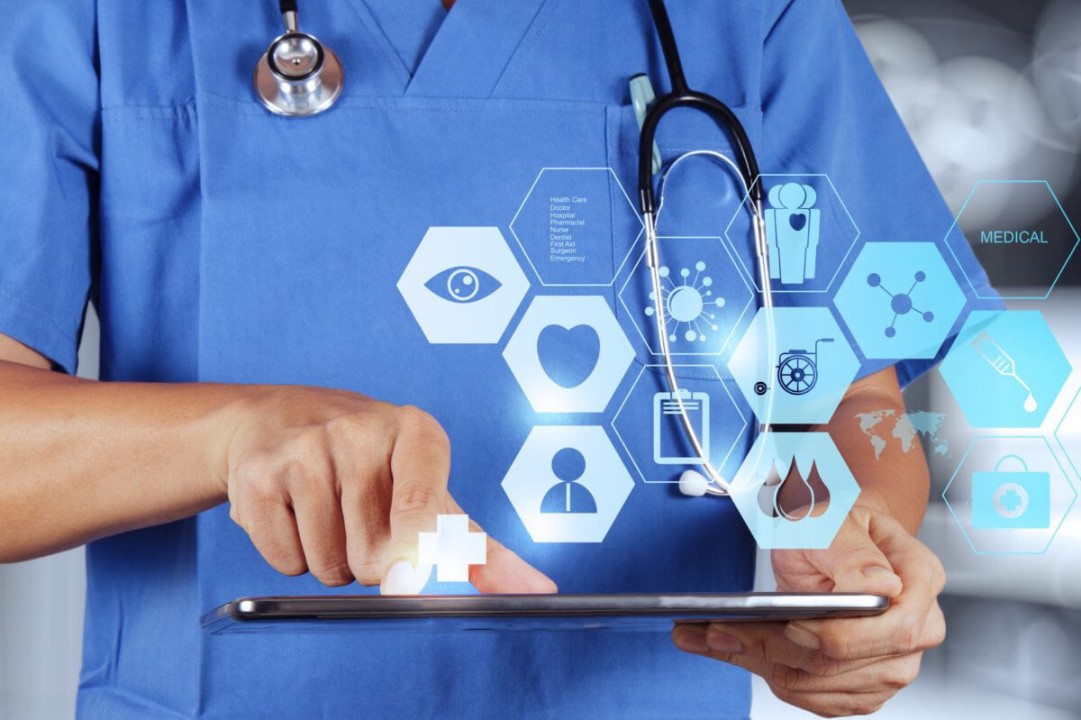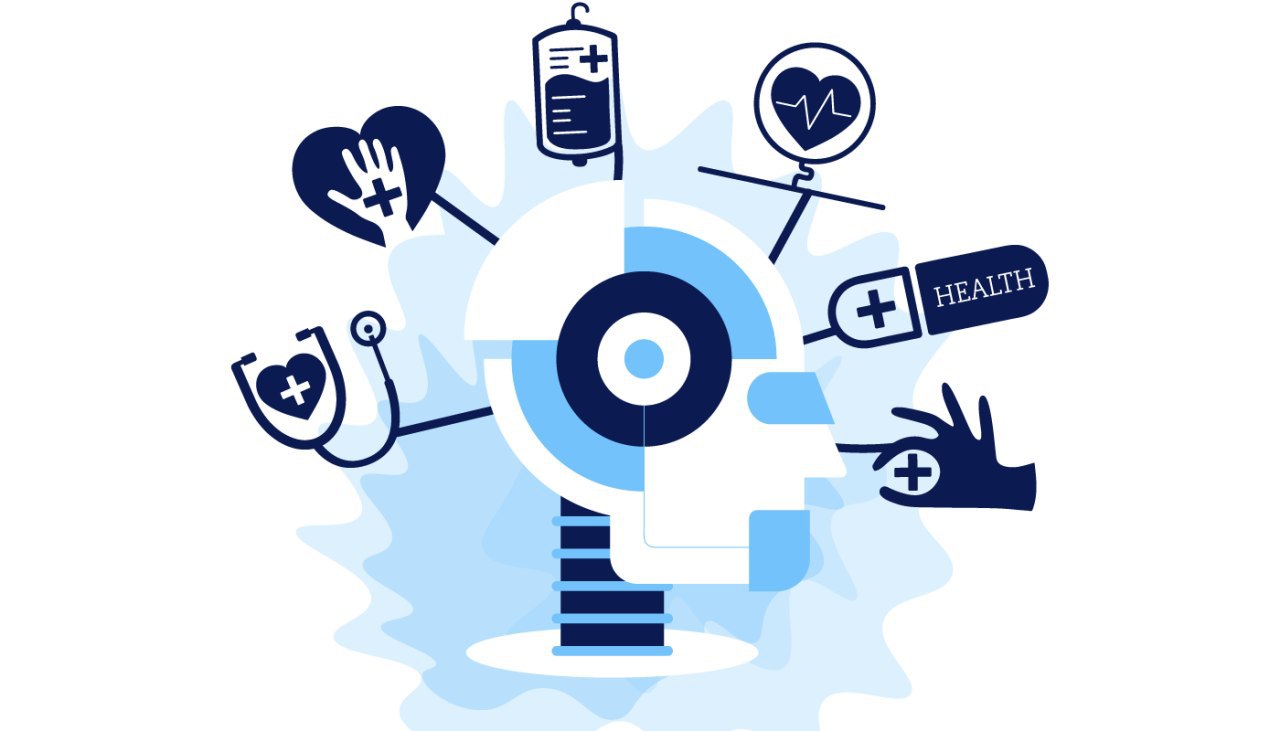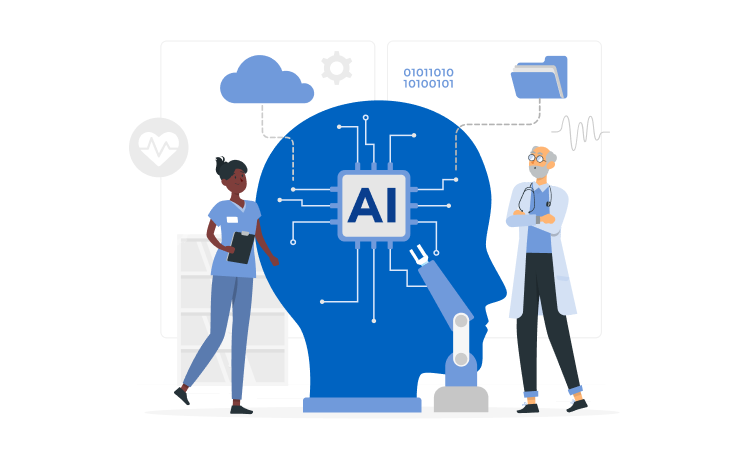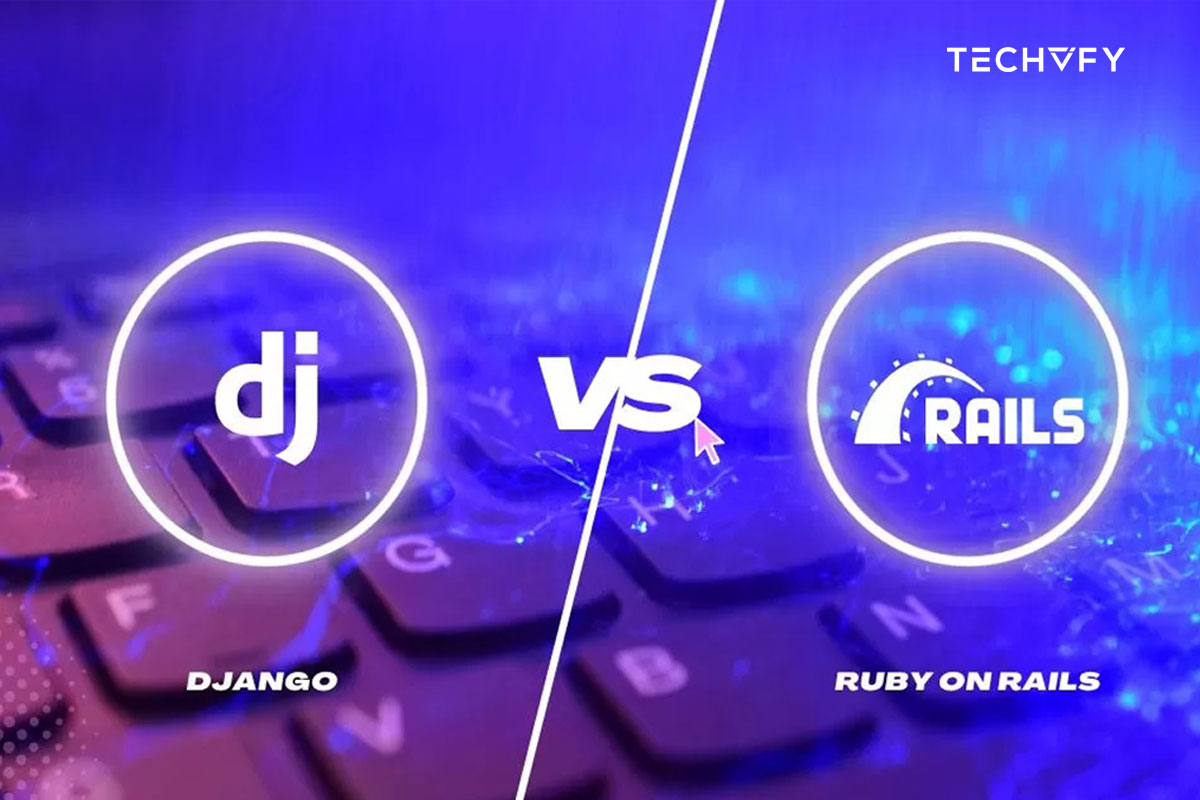Machine Learning in Healthcare – The Future Trend You Must Know
- Potter Le
- 0 Comments
The healthcare sector is constantly advancing, with continuous developments in technology and treatments. This rapid progress can be challenging for healthcare professionals to stay abreast of. The term “machine learning in healthcare” has recently gained significant attention. But what is machine learning in healthcare? Why is machine learning important in healthcare for managing patient data? And what are the benefits of machine learning in healthcare?
I. What is Machine Learning in Healthcare?
Machine learning in healthcare depends on gathering patient data. By employing systems and tools that organize and classify this data, machine learning algorithms can uncover patterns within these datasets. This enables healthcare professionals to detect new illnesses and foresee the results of treatments.
The amount of patient data amassed in healthcare settings, and even more so across a state or country, is immense. To manage this data effectively, it’s crucial to integrate all medical devices and records into a unified network. This integration allows data scientists to identify trends and patterns effectively.
Want to learn more about AI and Machine Learning? Check this out:
II. The Importance of Machine Learning for Healthcare Organizations
The growing use of machine learning healthcare offers providers the chance to adopt a predictive approach to precision medicine. This approach enhances care delivery, improves patient outcomes, and more efficient patient-focused processes.
Typical applications of machine learning healthcare among professionals include automating medical billing, aiding clinical decision-making, and developing clinical practice guidelines. Noteworthy examples of machine learning in healthcare include the work at MD Anderson, where data scientists have created a pioneering deep learning algorithm to predict acute toxicities in patients undergoing radiation therapy for head and neck cancers. In clinical settings, deep learning data helps automatically identify complex patterns, providing clinical decision support to primary care providers directly within the electronic health record.

A significant portion of healthcare data, nearly 80%, is unstructured and stored in electronic health record systems. This data consists not just of data elements but also relevant documents or text files containing patient information. Previously, this information required manual reading and couldn’t be processed by machine learning healthcare.
Human language presents a challenge with its complexity, lack of uniformity, ambiguity, and jargon. Healthcare machine learning often depends on artificial intelligence tools like natural language processing programs to transform these documents into more analyzable data. Most deep learning applications in healthcare that utilize natural language processing need some form of healthcare data for effective machine learning.
III. Applications of Machine Learning in Healthcare
So, how can machine learning be used in healthcare? Here are some of the most popular applications of machine learning in healthcare. Let’s take a look:
1. Disease Identification and Diagnosis
Machine learning is crucial in healthcare, particularly in detecting and diagnosing complex diseases. This includes early detection of challenging conditions like certain cancers and genetic disorders. IBM Watson Genomics exemplifies this by combining cognitive computing with genomic data to speed up diagnoses. Similarly, Berg, a biopharmaceutical company, uses AI to develop treatments in oncology. P1vital’s PReDicT project focuses on creating a viable method for diagnosing and treating depression in everyday clinical settings.
2. Drug Development and Production
Machine learning significantly contributes to the initial stages of drug development. This involves research technologies like next-generation sequencing and precision medicine, aiding in therapy development for complex diseases. Machine learning in this area often uses unsupervised learning to spot patterns in data without making predictions. Microsoft’s Project Hanover employs ML technologies for several purposes, including AI-driven approaches for cancer treatment and tailoring drug combinations for Acute Myeloid Leukemia (AML).
3. Diagnosis through Medical Imaging
Machine learning and deep learning have revolutionized medical imaging through Computer Vision technology. An example is Microsoft’s InnerEye project, which focuses on diagnostic tools for image analysis. As machine learning becomes more advanced and explanatory, we can expect a broader range of medical imaging data to integrate into this AI-powered diagnostic approach.

4. Tailored Medicine
Personalized treatment, combining individual health data with predictive analytics, is more effective and a growing research area. Doctors often select from a limited set of diagnoses or assess patient risk based on symptoms and genetic information. However, machine learning is advancing rapidly in this field. IBM Watson Oncology is leading this trend, using patients’ medical histories to suggest various treatment options. We anticipate increased sophisticated devices and biosensors, enhancing data availability for such advanced ML healthcare technologies.
5. Clinical Trials and Research
Machine learning offers numerous applications in clinical trials and research. Often costly and time-consuming, these trials can benefit from ML’s predictive analytics to identify suitable candidates, drawing from diverse data sources like past doctor visits and social media. Machine learning is also used for real-time trial participant monitoring, optimizing sample sizes, and improving data accuracy through electronic records.
IV. Machine Learning Use Cases in Healthcare
To have a better understanding of how is machine learning used in healthcare, here are real-life examples of machine learning in healthcare:
1. Health Insurance Enhancements
Case Study: Maya Intelligence in Health Insurance
Take the example of Temple University Health System (TUHS) in Philadelphia. They collaborated with Accolade to use the Maya Intelligence platform, which employs machine learning to analyze medical claims and other patient data. This approach helps patients select the most suitable healthcare plans. The result? TUHS saved over $2 million in healthcare claims and saw a 50% rise in employee engagement.
2. Virtual Nursing
Example: Molly, the Virtual Nurse
Molly, a virtual nurse avatar, exemplifies the use of machine learning in remote patient monitoring. She collects health data like blood pressure and weight from Bluetooth-connected devices in patients’ homes. Molly can understand and respond to spoken questions and offers a private conversation chatbot.

3. Robot-Assisted Surgery
Example: Senhance Surgical System
Robotics in surgery, aimed at increasing precision and reducing human surgeon workload, is familiar. The Senhance Surgical system is a prime example. This multi-armed, console-based system, powered by machine learning and deep learning, allows surgeons to operate remotely. It includes features like simulation training before surgery and real-time adjustments during operations, such as camera view optimization based on eye-tracking data.
4. Personalized Medicine
Example: IBM Watson Oncology
IBM Watson Oncology is an advanced AI tool that significantly enhances personalized medicine in cancer care. It analyzes various medical data, including genetic details, patient histories, and the latest research, to recommend customized cancer treatment options. This system aids doctors in selecting the most effective treatments tailored to each patient’s unique health profile. Continually updated with current oncology research, Watson Oncology is vital in providing personalized, data-driven cancer care.
Conclusion
Machine learning is revolutionizing healthcare, offering advancements from improved health insurance processes to virtual nursing and robot-assisted surgery innovations. Its impact spans disease diagnosis, drug development, medical imaging, personalized medicine, and clinical trials, enhancing the efficiency and personalization of care.
Machine learning’s impact on healthcare is clearly demonstrated through initiatives such as the Temple University Health System, Molly the virtual nurse, and the Senhance Surgical System. With ongoing advancements in this technology, its contribution to healthcare is set to expand, offering improved patient results and a more streamlined healthcare system.
Are you interested in harnessing the power of machine learning for your healthcare needs? Contact TECHVIFY today to connect with our machine-learning experts and explore how we can help you innovate and improve healthcare delivery. Get in touch with TECHVIFY.
Let’s talk
A consultation with the Client Relationship Manager, who represents TECHVIFY, without any commitment from your side, will give you:
- Structured and clear vision of your future application
- Information about how our software development company guarantees 100% on-time and on-budget delivery
- Recommendations for choosing the tech stack
- Advice on further steps
- Business-side recommendations
- Rough project estimation on software development
TECHVIFY is right where you need. Contact us now for further consultation:





